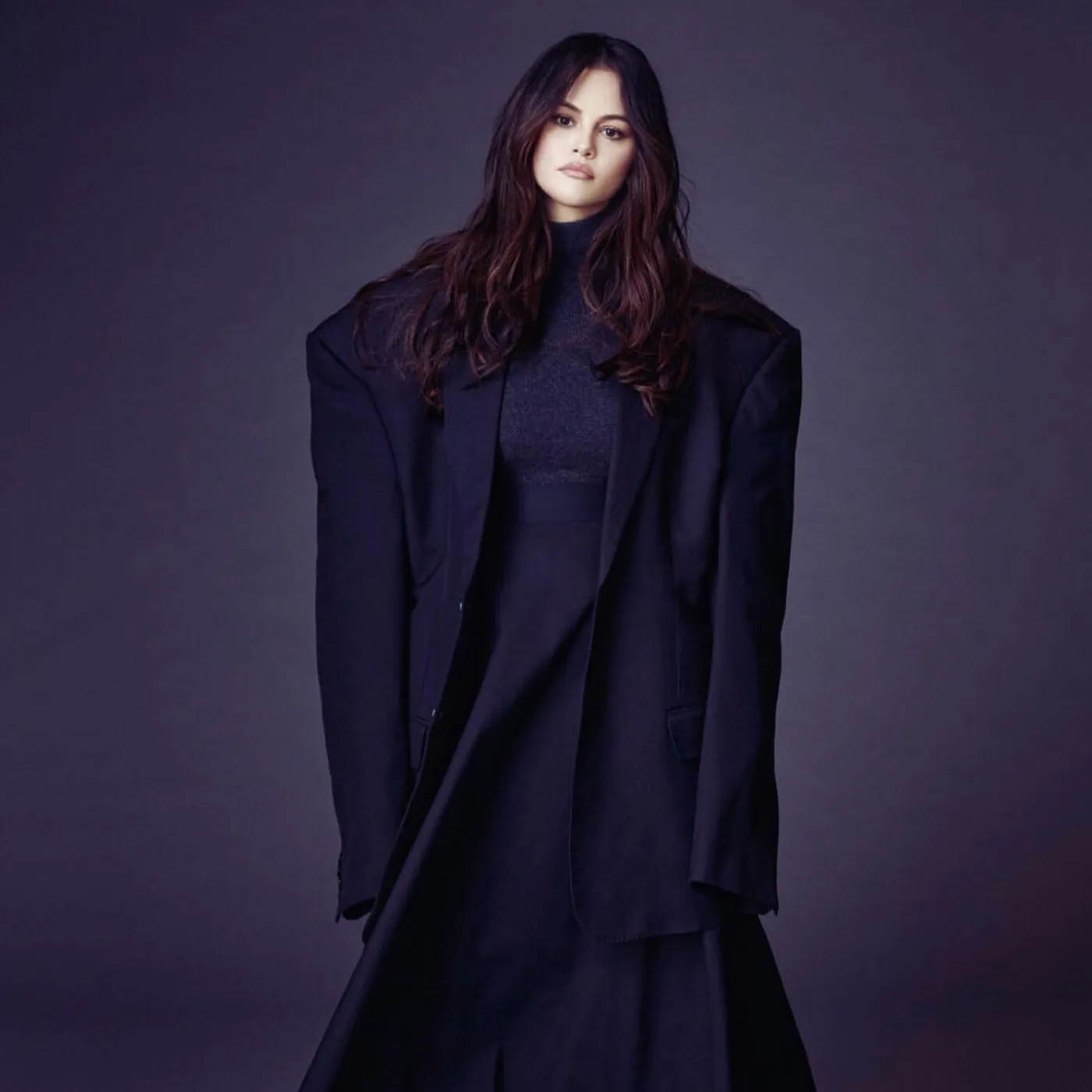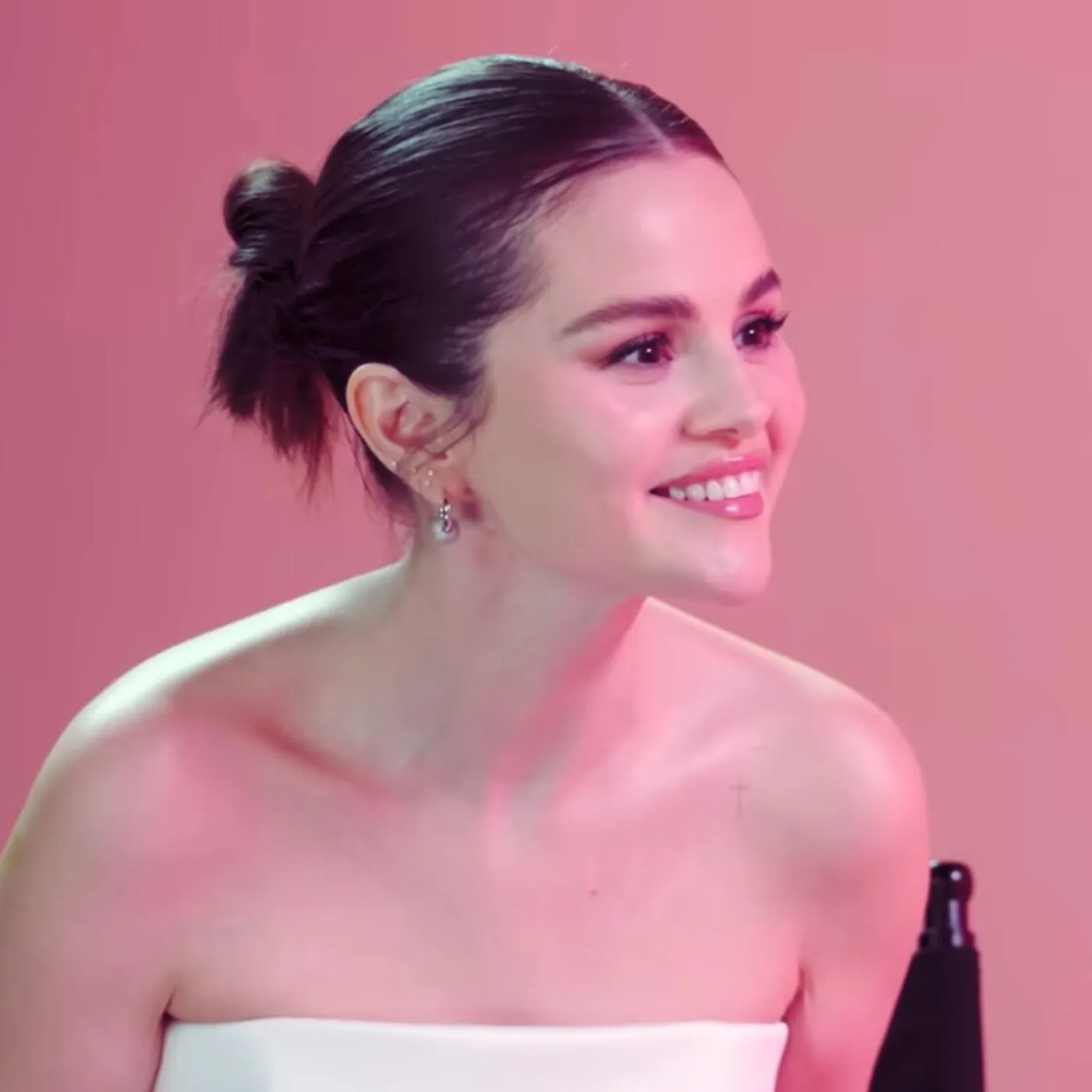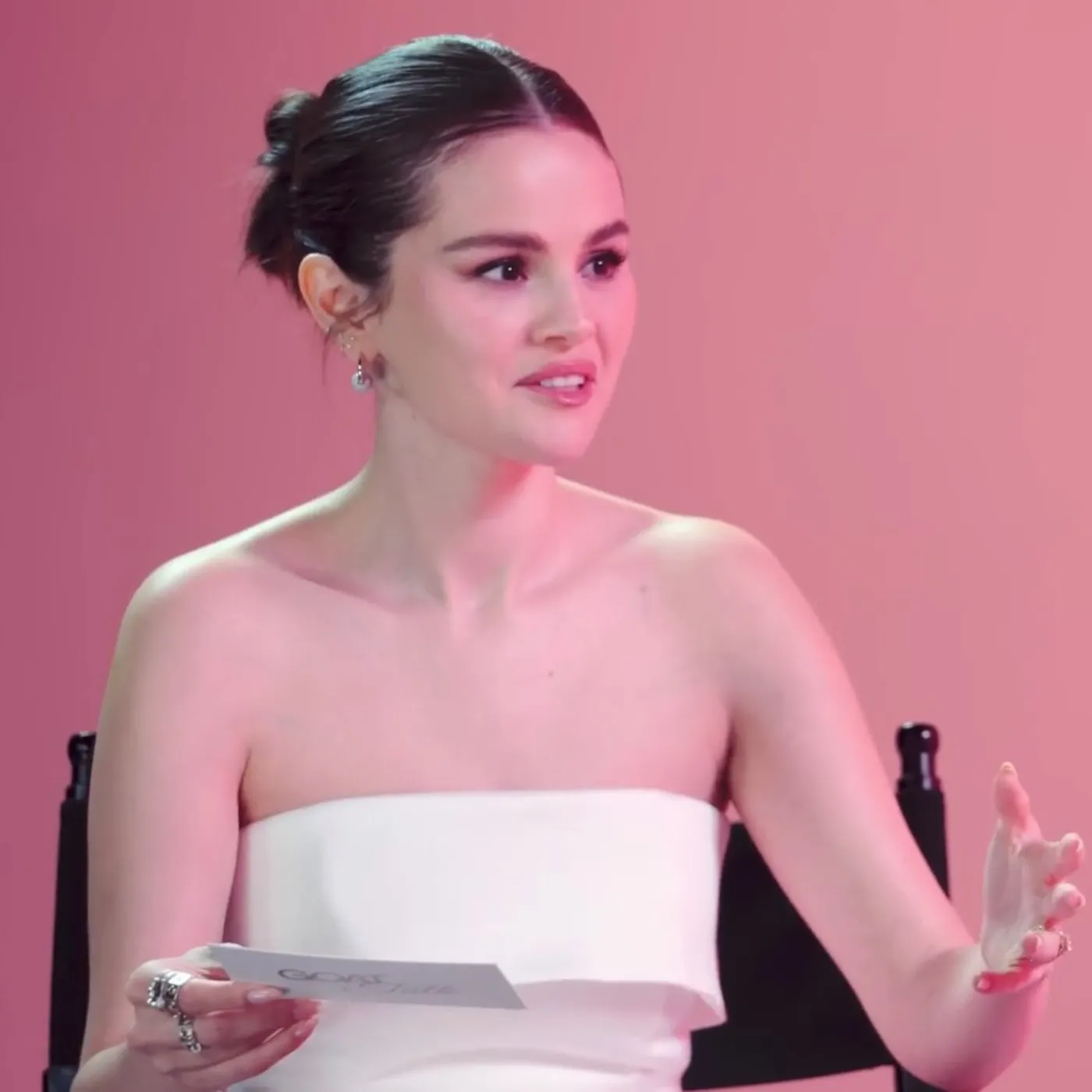

Selena Gomez’s Childhood Crush Wasn’t a Pop Star
In a pop culture landscape that thrives on shock value and social media drama, Selena Gomez just dropped a truth bomb that no one saw coming—and somehow, it wasn’t even part of a headline campaign. During a recent sit-down, Gomez casually revealed that her childhood celebrity crush was none other than rap icon Ice Cube, leaving fans confused, amused, and oddly emotional.

“I just thought he would protect me,” Selena said, with a laugh that didn’t quite mask the sincerity behind her words.
On paper, it sounds like a throwaway anecdote—cute, quirky, random. But in a world that insists on packaging stars into predictable molds, this confession broke the algorithm. It didn’t just go viral. It raised questions about identity, safety, power, and what it really means when a young girl picks a protector instead of a prince.
Selena Gomez: America’s Sweetheart with an Edge
Let’s not forget: Selena Gomez has spent most of her life being seen as the relatable girl next door. Her early Disney days molded her image into something squeaky clean, almost too safe. But that’s never been the full story.
In the last few years, Gomez has evolved—quietly, strategically, and with remarkable precision. She’s no longer just a singer or actress. She’s a producer, a founder, and a voice that doesn’t always play the algorithm’s game—but still wins.
That’s what makes this Ice Cube confession hit harder than expected. It wasn’t some PR stunt, nor a viral soundbite engineered in a boardroom. It felt raw, maybe even unfiltered. In a time when most celebrity interviews are scrubbed clean for optics, this one got messy—in the best way.
Ice Cube? Really? Why That Name Matters
Let’s talk about the obvious. Ice Cube isn’t the name anyone expected to fall out of Selena’s mouth. Not when the industry typically feeds fans a steady diet of soft-featured heartthrobs, harmless crushes, or pop culture darlings.
Ice Cube was never marketed as a teen idol. He was a rebel, a street poet, and a cultural disruptor. From N.W.A.’s explosive anti-establishment message to his transition into hard-hitting film roles, Ice Cube never softened himself to become palatable for the mainstream.
So when Selena Gomez—arguably one of the most overexposed yet consistently underestimated stars of her generation—admits that he was her earliest crush, the statement carries unexpected cultural weight.
This wasn’t about romantic infatuation. It was about security, about power, about feeling safe in a world that rarely offered that to young women—especially young women of color.
“I thought he’d protect me.”
That line alone should be studied.

Fans React: The Timeline Can’t Cope
Unsurprisingly, Twitter (or X, as it’s now called) exploded. TikTok was flooded with reaction videos. Memes started flying. And the responses were anything but one-note.
Some fans were thrilled: “Selena having a crush on Ice Cube is the crossover I didn’t know I needed.”
Others were confused: “I don’t get it. She was watching ‘Are We There Yet?’ and got feelings??”
But a surprising number of fans picked up on the deeper meaning: “It’s kinda powerful that little Selena looked up to Ice Cube as someone who made her feel safe. Not hot. Safe.”
In a comment culture obsessed with appearances and likes, this moment reminded everyone that Gomez’s story—like many others—isn’t always about romance. Sometimes, it’s about survival.
Rewriting What a ‘Crush’ Means
Hollywood has long sold us a narrow definition of what a childhood crush should look like. Blonde, blue-eyed, smooth-talking. Boy bands. Movie boys. Fairytale archetypes with mass appeal.
But Selena Gomez, knowingly or not, just rejected all that. She chose Ice Cube—not because he fit the image, but because he projected a kind of unshakable presence.
That, in itself, is a radical departure from the norm.
Crushes, especially the kind we form in childhood, aren’t always romantic. They’re about comfort. They’re about yearning for stability in unstable surroundings. They’re about finding something or someone who feels like a shield. And Ice Cube, in Selena’s young mind, was that shield.
Selena’s Trauma Isn’t Up for Clickbait—But It’s There
To fully understand the impact of this confession, you have to consider the backdrop: Selena Gomez hasn’t had an easy road. From chronic illness to very public heartbreaks, she’s been navigating personal storms under a microscope since childhood.
The fact that she picked someone like Ice Cube—known for his grounded masculinity, his no-nonsense persona, and his reputation for being fiercely protective of his values and his family—says more than she probably intended.
This wasn’t a thirst trap. This wasn’t a meme. It was a signal.
And it hit.
From Ice Cube to Ice-Cold Strategy
Selena’s confession isn’t just going viral—it’s strategically brilliant. Whether intentional or not, she just sparked one of the most interesting celebrity-fan conversations in months.
It’s deeper than just a quote. It’s a reminder that Gomez has quietly mastered the art of disruption without destruction.
She doesn’t yell. She doesn’t bait. She doesn’t pick fights.
Instead, she drops a sentence that rattles the internet and then disappears.
That kind of cultural influence isn’t bought. It’s built.
Protective Energy and Public Personas
There’s something universal in what Selena expressed. In an entertainment world that often objectifies women while feeding them toxic ideas of romance, she reached back to something primal:
The need to feel safe.
This wasn’t about chasing the “bad boy.” It was about chasing the man who wouldn’t let the bad in.
And whether she realized it or not, Selena Gomez might’ve just shifted the celebrity crush conversation forever. Not toward romance. Not toward scandal. But toward security, strength, and substance.

A Celebrity Confession That Actually Meant Something
In a year where most headlines read like recycled clickbait, this one felt different. It didn’t rely on nudity, drama, or controversy.
It relied on honesty.
And in 2025, honesty from a celebrity with Selena Gomez’s level of visibility might be the most disruptive thing of all.
It wasn’t just about Ice Cube. It was about what Ice Cube represented.
And in that moment, Selena Gomez didn’t just share a crush. She shared a code—about resilience, safety, and growing up in a world where you don’t always feel like the main character of your own story.
Now? She’s rewriting it.


















